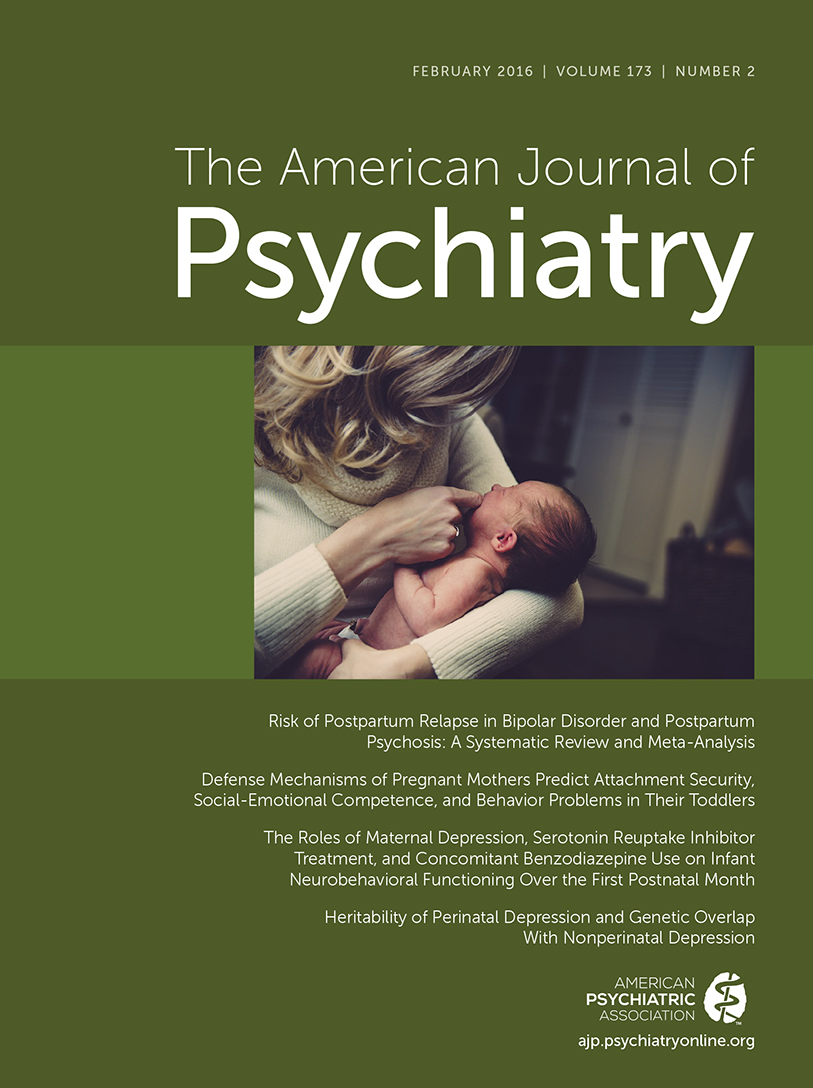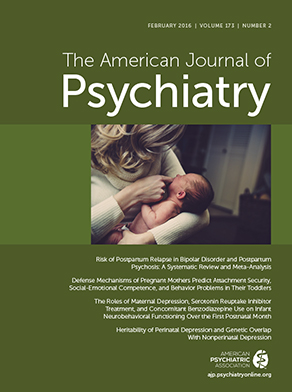Clozapine has a special place in the treatment of schizophrenia. Controlled trials over the past three decades have demonstrated that it is more effective than other medications for treating psychosis in individuals who are poor responders to other antipsychotics. This is clearly evident for the most severely ill patients who are commonly treated as inpatients, and it is also true for outpatients who have lingering symptoms as a result of being partial responders. The superiority of clozapine has also been apparent in large meta-analyses of clinical trials where it produces better outcomes than all other medications (
1). In this issue of the
Journal, the article by Stroup and colleagues (
2) uses Medicaid data to address clozapine’s effectiveness in the clinical settings where it is likely to be prescribed. The study compared outcomes in subjects who were treated with clozapine with propensity-matched patients who were treated with another antipsychotic. The clozapine-treated patients were less likely to be hospitalized (hazard ratio=0.78), less likely to have their medication changed (hazard ratio=0.76), and less likely to have an additional antipsychotic (hazard ratio=0.76). As expected, clozapine was associated with new incidents of diabetes (hazard ratio=1.41), hyperlipidemia (hazard ratio=1.24), and intestinal obstruction (hazard ratio=1.94). The findings (as indicated in the tables in the data supplement) are still valid when the studies inclusion criteria are broader and narrower.
This observational trial is important because it indicates that clozapine’s advantages can be shown in routine clinical practice in the United States, as well as in controlled clinical trials. It is important to note that propensity-matching matches subjects for their degree of illness, but not for treatment factors other than the drug itself that may be associated with better study outcomes. As noted by the authors, settings where clozapine is commonly prescribed may have better clinicians and better resources. Also, patients who are willing to accept clozapine treatment may be more cooperative and treatment adherent. On the other hand, the study’s outcomes that focused on hospitalization and medication changes may miss some of clozapine’s distinct advantages. For example, in a VA Cooperative Study, Rosenheck and colleagues (
3) found that patients who were treated with clozapine were more likely to become receptive to psychosocial treatments and rehabilitation. This activity was then associated with improved functional outcomes. It is also this writer’s experience that patients who receive clozapine may continue to experience psychotic symptoms, but they acknowledge less dysphoria related to the symptoms.
The large body of evidence from controlled and observational trials supports the recommendation by the Schizophrenia Patient Outcome Team that patients who continue to experience persistent and clinically significant psychotic symptoms on other antipsychotics should be offered a clozapine trial (
4). Unfortunately, clozapine is underutilized. A study using Medicaid data from 2005 to 2009 (
5) found that clozapine represented only 4.8% of antipsychotic use in schizophrenia. This represented a slight decline from a prior study. There are a number of explanations for the underutilization of clozapine. Prescribing clozapine is more time-consuming than other antipsychotics. The process of registering a patient, arranging blood monitoring, and managing clozapine side effects can be challenging in a busy clinic where prescribers have only brief encounters with patients. There is also a perception that clozapine is a dangerous drug. However, despite risks of diabetes, myocarditis, seizures, and intestinal obstruction, there is evidence that clozapine is associated with reduced mortality (
6). A recent study that also used Medicaid data found that clozapine was less costly than the polypharmacy that is common with poor antipsychotic responders (
7).
This may be a good time for renewing efforts to increase the use of clozapine. The introduction of the Clozapine REMS [risk evaluation and mitigation strategy] program replaces what were multiple registries for clozapine. The new system also recognizes benign ethnic neutropenia [BEN], a condition that previously made clozapine difficult and sometimes impossible to prescribe in some patients. BEN is a nonpathological reduction in the neutrophil count that affects many individuals of African and Middle Eastern descent. If clinicians are not practicing in a setting where there is an established clozapine clinic, they may be able to take advantage of services that register patients, link pharmacies to labs, provide recommended titration schedules, and perform the monitoring. In public health settings and the VA, allowing nonphysician providers, including nurse practitioners, pharmacists, and others, to prescribe clozapine for patients who are already established as appropriate candidates for a trial may increase clozapine use.
Psychiatry as a field should also address the under-use of clozapine. Every psychiatry resident should be registered in clozapine REMS and should have experience with the drug. Every clinician who has a practice that includes a substantial number of schizophrenia patients should be registered and familiar with clozapine. If a clinician is uncomfortable with prescribing clozapine, the patient who is a candidate should probably be referred to another provider. The most compelling reason for prescribing clozapine is that one can never predict how well a patient will respond until he or she has had an adequate trial.

